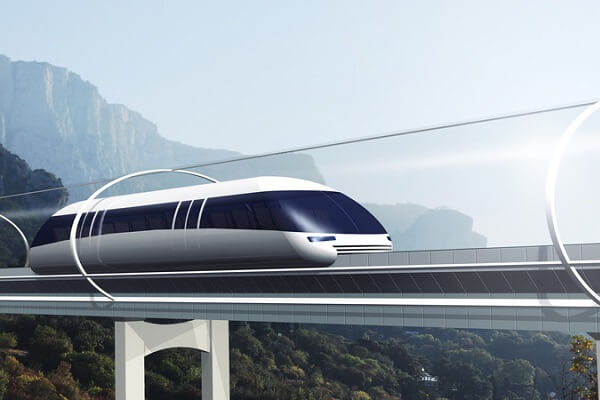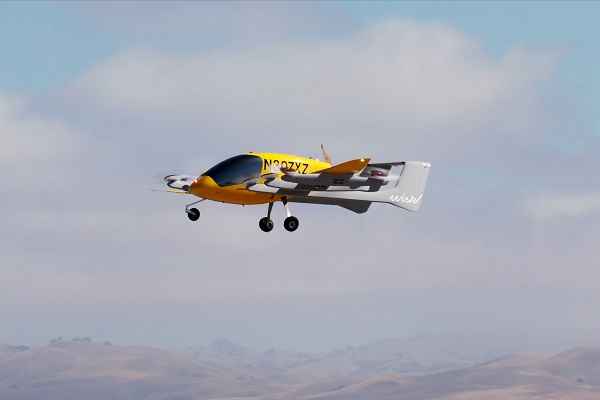 North-South Commuter Railway (NSCR): Modern Train Network Connecting Luzon Island
North-South Commuter Railway (NSCR): Modern Train Network Connecting Luzon Island India launched Bharat Taxi Service as First Cooperative-Owned Digital Mobility Platform
India launched Bharat Taxi Service as First Cooperative-Owned Digital Mobility Platform India places World’s First Live Commercial Order for Hyperloop-Based Cargo Logistics
India places World’s First Live Commercial Order for Hyperloop-Based Cargo Logistics How Weigh-in-Motion Systems Are Revolutionizing Freight Safety
How Weigh-in-Motion Systems Are Revolutionizing Freight Safety Women Powering India’s Electric Mobility Revolution
Women Powering India’s Electric Mobility Revolution Rail Chamber Launched to Strengthen India’s Global Railway Leadership
Rail Chamber Launched to Strengthen India’s Global Railway Leadership Wage and Hour Enforcement Under the Massachusetts Wage Act and Connecticut Labor Standards
Wage and Hour Enforcement Under the Massachusetts Wage Act and Connecticut Labor Standards MRT‑7: Manila’s Northern Metro Lifeline on the Horizon
MRT‑7: Manila’s Northern Metro Lifeline on the Horizon Delhi unveils ambitious Urban Mobility Vision: Luxury Metro Coaches, New Tunnels and Pod Taxi
Delhi unveils ambitious Urban Mobility Vision: Luxury Metro Coaches, New Tunnels and Pod Taxi Qatar approves Saudi Rail Link Agreement, Accelerating Gulf Railway Vision 2030
Qatar approves Saudi Rail Link Agreement, Accelerating Gulf Railway Vision 2030
AECOM submits feasibility study report of Midwest Hyperloop project

Columbus, Ohio (Urban Transport News): Los-Angeles based American multinational engineering firm, AECOM has submitted its feasibility study report of Midwest Hyperloop project. The study was conducted as part of Rapid Speed Transportation Initiative (RSTI) of the Mid-Ohio Regional Planning Commission (MORPC) that focuses on better, faster connections from Columbus to Chicago and Pittsburgh, spurring economic growth, generating opportunities for development, and creating new opportunities for people and businesses in the Midwest megaregion. Jay Walder, CEO of Virgin Hyperloop One, said:
Hyperloop is fundamentally about more than just getting from A to B quickly. It’s about the enormous benefits – economic uplift, job creation, emission reductions, and the opportunity to fundamentally change the way people live and work. We’re proud to be working with MORPC to continue advancing a hyperloop route in the Midwest.
MORPC has released the results of its Midwest Hyperloop Connect study, exploring a hyperloop transportation connection between Columbus, Chicago, and Pittsburgh. The study found that the route would create $300 billion in overall economic benefits and reduce CO2 emission by 4 million tons.
Transportation & Infrastructure Development Director at MORPC, said:
We have continued to advance the work along this corridor ever since winning the Virgin Hyperloop One Global Challenge in 2017 and conducting this feasibility study was one of our first, major action steps. The main takeaway is that hyperloop technology is, indeed, feasible along this route.
The technical and commercial feasibility of the Midwest Hyperloop project was confirmed by analyzing route alignments, comparative costs, engineering complexity, public right of ways, environmental constraints, ridership volumes, and travel behavior. The study found that hyperloop would connect Chicago and Columbus in under 45 minutes with an estimated ticket cost of US$60 – compared to nearly 6 hours driving or a plane ticket costs about US$100 – and Columbus to Pittsburgh in under 30 minutes with an estimated ticket cost of US$33 – compared to nearly 3 hours driving or a plane ticket costing about US$150.
To further the realization of the Midwest hyperloop project, MORPC plans to create a travel and economic demand advisory panel to improve and further refine the high-level analyses developed. To continue advancing the regulatory framework for hyperloop technology MORPC and their partners have submitted a proposal to host the Hyperloop Certification Center (HCC), which would allow hyperloop to achieve key technological milestones, like faster speeds and turning, and political ones, like creating a national framework for safety certification.





